SIGNUM DRACONIS im höllischen Inferno-Interview

(English version down below)
Gebt all Eure Hoffnung auf, die ihr hier eintretet!
Es war inmitten meiner Reise des Lebens, als ich mich in einem dunklen Wald wiederfand, nachdem ich vom rechten Weg abgekommen war.
SIGNUM DRACONIS (Facebook) haben mich mit ihrem monumentalen Album „The Divine Comedy: Inferno“ total begeistert. Noch nie habe ich ein so überwältigendes und zugleich monumentales Album gehört, das sich dem Thema von Dantes Inferno in einer außergewöhnlich ergreifenden und aufopfernden Art und Weise angenommen hat. (Review gibt es hier!)
SIGNUM DRACONIS
Metalhead: Stammt der Name SIGNUM DRACONIS auch aus der Literatur oder hat dieser Name eine historische Bedeutung?
Oscar:
Der Name SIGNUM DRACONIS hat eine historische Bedeutung, da wir uns auf den Orden des Drachen beziehen. Es handelt sich um einen mittelalterlichen Orden von Rittern, Adligen und Fürsten. Diese haben sich verpflichtet die Kirche zu verteidigen und gegen alle Feinde zu kämpfen. Natürlich unterscheiden sich unsere Ziele von denen des alten Drachenordens. Unsere Ideale als Band SIGNUM DRACONIS konzentrieren sich auf den Schutz der Kunst, die Verteidigung der Kultur und die Unterstützung der Wissenschaft, unabhängig von Rasse, Geschlecht oder Glauben.
Musikalische Historie
Metalhead: In Anbetracht der Qualität des Albums ist es klar, dass Ihr und eure Bandmitglieder nicht erst seit gestern Musik machen. Wo habt Ihr alle eure bisherigen musikalischen Erfahrungen gesammelt?
Filippo
Das ist eine sehr schwierige Frage! Mein musikalisches Leben hat sich im Laufe der Jahre sehr verändert und jede kleine Erfahrung hat mich beeinflusst. Als ich jünger war, spielte ich klassisches Klavier und gelegentlich in kleinen Ensembles. Dann spielte ich in tausend Bands, die von progressiven und Gothic-Metal-Originalprojekten bis hin zu Hardrock und afro/lateinamerikanischen Coverbands reichten, die durch ganz Italien tourten.
Jetzt konzentriere ich mich hauptsächlich auf Studioproduktionen. Kürzlich habe ich mich um die Arrangements des Lione/Conti-Albums gekümmert und war als Songwriter für Geoff Tates Nebenprojekt „Sweet Oblivion“ tätig.
Max:
Ich habe persönlich meine musikalischen Erfahrungen im Proberaum und bei all den Gigs gesammelt, die ich im Laufe meiner Karriere mit allen Bands gespielt habe. Ich bin im Grunde genommen Autodidakt, also habe ich mir auf der Bühne und bei den Proben meine Gesangskünste angeeignet.
Natürlich muss ich zugeben, dass die Inspiration und das Beispiel all der großen Sänger, die ich liebe, einen großen Teil dazu beigetragen haben. Sie haben mir wirklich den Weg gezeigt, den ich einschlagen wollte, und die Art von Klang, die ich für meine Stimme wollte.
Oscar: In meinem Fall sind es Jahre des Studiums und der Arbeit, des Lernens über die Jahre hinweg, basierend auf Stolpern, Fallen und wieder Aufstehen… immer und immer wieder. Man könnte sagen, dass die heute erworbene Erfahrung bequem in einem Berg von Fehlern und Misserfolgen sitzt.
Ich habe als Teenager angefangen, in Bands zu spielen, aber keine von ihnen war relevant. Es gab ein Projekt im Jahr 2007 (bei dem ich Francesco Micieli, den Schlagzeuger von SIGNUM DRACONIS, kennenlernte und mit ihm zusammenarbeitete), das einen leichten Bekanntheitsgrad genoss, aber alles hörte auf, als ein Projekt in mein Leben trat, das ich anfangs ‚Dante 2.0‘ nannte und das schließlich zur Band SIGNUM DRACONIS führen sollte.
Die besten Konzeptalben
Metalhead: Welches ist für Euch das beste Konzeptalbum in der Rock/Metal-Geschichte? Und aus welchen Gründen denkst Ihr, dass es das ist?
Oscar
Das beste? Oh Mann! Ich könnte mich nicht für ein einziges entscheiden. Es gibt eine Menge unglaublich guter Konzeptalben. Wenn wir zum Beispiel über Progessive/Rock sprechen, sind die ersten, die mir einfallen, ‚Misplaced Childhood‘ (MARILLION), ‚The Wall‘ (PINK FLOYD ) oder ‚Lamb Lies Down on Broadway‘ (GENESIS). Wenn wir andererseits über Metal sprechen, ist einer meiner Favoriten aller Zeiten ‚Seventh Son of a Seventh Son‘ (IRON MAIDEN), auch ‚Abigail‘ (KING DIAMOND) oder ‚V: The New Mythology Suite‘ (SYMPHONY X). Und natürlich möchte ich auch AVANTASIA, AYEREON oder GRAVE DIGGER nicht vergessen, deren konzeptionelle Arbeiten spektakulär sind.
Ich könnte Dir nicht sagen, welches das beste von allen ist. Aber wenn Du mir erlaubst, werde ich einen Opera Rock erwähnen, für den ich eine tiefe Bewunderung empfinde. Ich denke, dass das Album ‚Nostradamus‘ von Herrn Nikolo Kotzev in kompositorischer Hinsicht ist es ein Juwel ist.
Filippo
Ich weiß wahrscheinlich nicht genug über Konzeptalben, um sagen zu können, welches das „Größte aller Zeiten“ ist, aber „BE“ von PAIN OF SALVATION hatte sicherlich einen großen Einfluss auf mich. Auch wenn ich heute von dieser Art von Album weit entfernt bin, repräsentiert es in gewisser Weise meine Vorstellung von „Kommunikation durch Musik“, es ist einfach eine großartige Oper.
Max:
Meine Antwort kann nur eine sein. SIGNUM DRACONIS und „Die Göttliche Komödie – Inferno“!!!
Aber ich muss zugeben, dass neben unserem Album das Konzept, das ich für das größte aller Zeiten halte, „The Emerald Sword Saga“ von RHAPSODY OF FIRE ist. Ihre ersten fünf Alben waren ein einzigartiges, enormes Konzept und schockierten die Welt zu dieser Zeit total. Die perfekte Verbindung zwischen Klassik und Metal in erstaunlichen Kompositionen. Alles untermalt von der unglaublichen und unvergleichlichen Stimme von Fabio Lione, ist meiner persönlichen Meinung nach der höchste Gipfel, der je im Symphonic Metal erreicht wurde.
Die Zusammenkunft von SIGNUM DRACONIS
Metalhead: Wie hat sich die Band SIGNUM DRACONIS zusammengefunden? Wie lange hat es gedauert, bis Du alle Mitglieder gefunden hast?
Oscar:
Ich habe zwei Jahre gebraucht, um alle Mitglieder zu finden und die Band zu vereinen. Das war nicht einfach, aber ich hatte es nicht eilig. Denn ich wusste sehr genau, wonach ich suchte. Also wählte ich sie einen nach dem anderen aus.
Der Prozess war einfach! Ich schloss meine Augen, hörte ihnen zu und vom ersten Ton an konnte ich spüren, ob ich einen echten Drachen vor mir hatte oder nicht.
Der erste, der erschien, war Francesco Micieli (Schlagzeug), dann Max Morelli (Sänger) und später Filippo Martignano (Keyboards) und schließlich Stefano Antonelli (Bass).
Lust auf etwas monumentales?
Metalhead: Max &Filippo, erzählt uns von Eurem Standpunkt aus! Wie habt Ihr von diesem Projekt erfahren? Was habt ihr im ersten Moment gedacht, als euch klar wurde, dass es sich um die Vertonung der Göttlichen Komödie handeln würde? Hattet Ihr vor der Zusammenarbeit irgendeinen Kontakt mit Dantes Epos?
Filippo:
Damals kam Oscar über die sozialen Netzwerke zu mir und sagte so etwas wie: „Willst du in einem großen und ehrgeizigen Projekt mitspielen?“. Natürlich sagte ich „Ja“. Dann verschwand er für vier Jahre und kam mit 17 tollen Tracks zurück. Ich dachte: „Na ja, es hat etwas gedauert, aber er hat sein Versprechen sicher gehalten“.
Max:
Nun, ich dachte einfach, es wäre toll, mit einem so großartigen Musiker und Komponisten wie Oscar zusammenzuarbeiten. Wir sind seit über 20 Jahren befreundet und damals vor 11 Jahren sprach er mit mir über das Projekt. Er fragte mich, ob ich der Leadsänger sein wolle. Dies war für mich einfach eine große Freude und Ehre!!!
Zunächst einmal, wie ich schon sagte, wegen der Möglichkeit, mit sehr talentierten Musikern wie Oscar und all den anderen Jungs zusammenzuarbeiten, mit der Unterstützung eines echten Orchesters und Chors. Und nicht zuletzt war das Thema von Dantes Komödie einfach eine sehr aufregende Herausforderung, der ich mich stellen wollte. Weißt Du, hier in Italien studieren wir Dante und seine Komödie seit der Oberstufe. Wir lieben Dante wirklich und sind so stolz auf ihn, er ist eine der beliebtesten „italienischen Flaggen“, also war es für mich eine großartige und aufregende Idee.

Der Zündfunken für „Die Göttliche Komödie“
Metalhead: Ich habe in meiner Rezension eures Albums bereits kurz angesprochen, was der Auslöser für dieses Projekt war. Oscar, könntest Du trotzdem erklären, wie es genau passiert ist. Was war der Funke, der in dir das Feuer für Dante’s Inferno entfacht hat?
Oscar
Es geschah alles vor elf Jahren. Damals ging ich wirklich durch die Hölle, mein Leben hatte sich auf allen Ebenen in ein völliges Chaos verwandelt. Es schien, als ob alles, absolut alles, woran ich glaubte, wonach ich mich sehnte oder wofür ich gekämpft hatte, sich wie Rauch im Wind verflüchtigte und ich nichts dagegen tun konnte. Hinzu kam, dass all das mit der Wirtschaftskrise zusammenfiel, und diese Situation war nicht gerade hilfreich.
Eines Tages, gesättigt und müde von so viel Ungerechtigkeit, setzte ich mich ins Auto und fuhr ziellos aus der Stadt, auf der Suche nach einem Ort, an dem ich allein und in Stille sein konnte, zu viele Dinge im Kopf… Verstehst Du?
Ich hielt an einem einsamen Ort an, schaute in den Himmel und versuchte, mich nur auf meinen eigenen Atem zu konzentrieren, um an nichts zu denken. Und plötzlich ertönte, nicht als Stimme, sondern als ein Gefühl, das meinen ganzen Körper durchlief, eine einfache und klare Botschaft:
Vertone die Göttliche Komödie!
Es war keine Zeit für mehr für andere Dinge. Ich startete schnell das Auto, fuhr zu meinem Haus und sobald ich dort ankam, nahm ich ein Exemplar der Göttlichen Komödie und begann von diesem Moment an zu arbeiten.
Wie soll das funktionieren?

Metalhead: Oscar, „Die Göttliche Komödie“ ist ein monumentales Werk. Und Dante begegnet auf seiner Reise fast 900 verschiedenen Figuren! Das literarische Werk ist wahrlich keine leichte Kost. Wie geht man ein so großes musikalisches Projekt an? War Euch zu Beginn bewusst, welche Dimensionen das Projekt annehmen würde?
Oscar:
Mit Herz, Glaube und Stahl! (hahaha)
Nein, ich hatte keine Ahnung. Als ich mit der Arbeit begann, klammerte ich mich einfach an eine Idee. Und im Laufe der Zeit lernte ich und entdeckte die Komplexität der Arbeit, die ich vor mir hatte.
Ich hatte die ‚Göttliche Komödie‘ schon einmal gelesen, aber damals habe ich versucht, sie als musikalisches Werk zu begreifen. Als ich die Lektüre beendete, dachte ich naiv so etwas wie: „Oh, gut! Ich glaube, dafür brauche ich nur ein paar Jahre“ (LOL).
Um mich einem solchen Werk zu nähern, habe ich versucht, es nicht als Ganzes zu betrachten, sondern es in kleine Teile zu zerlegen. Sagen wir, um den Krieg zu gewinnen, musste man vorher viele Schlachten mit Geduld, Ausdauer und Disziplin schlagen, so etwas wie: nach der einen kommen zwei usw.
Herausforderungen
Metalhead: : Was ist Eurer Meinung nach die größte Herausforderung bei der Realisierung eines Konzeptalbums von solchem Ausmaß?
Filippo:
Ich würde sagen: „Alles“, aber ich denke, das ist keine gute Antwort. Aber es stimmt schon: die meiste Zeit schien alles überwältigend zu sein, aber schließlich konnten wir jedes Teil des Puzzles an seinen Platz legen.
Der schwierigste Teil war wahrscheinlich, allen Beteiligten einen Zusammenhang zu geben: Orchester, Keyboards, Gastsänger, Soundeffekte usw. Je mehr Dinge man hinzufügt, desto schwieriger ist es, dem Ganzen einen Sinn zu geben, ohne einen sinnlosen Schmelztiegel zu schaffen.
Max:
Die größte Herausforderung bestand darin, Dantes Werk gerecht zu werden. Ich meine, wir reden hier über einen der größten Dichter der Geschichte. Wenn man also ein Album darüber machen will, muss man auf einem sehr hohen Niveau sein. Deshalb wurde alles sorgfältig und nach langer Überlegung gemacht. Die Wahl eines echten Orchesters und Chors zum Beispiel entsprang genau dieser extremen Aufmerksamkeit für jedes einzelne Detail, wir kämpften darum, der Aufgabe, die wir uns gestellt hatten, gerecht zu werden.
Oscar
Während dieser Reise durch Dantes Inferno gab es zahllose Herausforderungen. Stolpern, Stürze, Fehler, Enttäuschungen, Sackgassen, die zur Verzweiflung führten, Momente, in denen man nur noch daran dachte, das Handtuch zu werfen. Aber ich glaube, die größte Herausforderung war der Versuch, mit Dantes Werk Schritt zu halten.
Ein Gleichgewicht schaffen
Metalhead: Oscar, würdest Du Deine entflammte Begeisterung für das Werk als eine positive Form der Besessenheit bezeichnen? Du bist tief in die Materie eingetaucht. Wie sehr hat es Dein Leben in dieser Zeit beeinflusst?
Oscar
Von der Arbeit besessen zu sein, ist meiner Meinung nach nicht empfehlenswert, aber es hängt auch von dem Grad der Exzellenz ab, den jeder erreichen möchte. Daher ist es wohl eine Frage des Gleichgewichts zwischen der Arbeit und den Gefühlen.
In meinem Fall habe ich nie darüber nachgedacht, ob ich von der Arbeit oder eher von der Suche nach Perfektion besessen war: Die Idee war, einen Tribut zu zollen, der zumindest Dantes Magnum Opus würdig war. Das war unser Ziel, unsere Mission! Und die musste erfüllt werden! Das hat mein Leben natürlich total beeinflusst und verändert.
Wie fühlt man sich in der Rolle des Dante?

Metalhead: Max, Du verkörperst die Rolle des Dante. Wie fühlt es sich an, in die Rolle einer so berühmten Person der Zeitgeschichte zu schlüpfen?
Max:
Natürlich fühlt es sich großartig an! Und ich möchte noch einmal anmerken, dass es einfach eine große Ehre für mich ist, eine so majestätische Figur der italienischen Geschichte zu verkörpern. Es hat mich viel gelehrt, vor allem in Bezug auf die Interpretation.
Jede einzelne Note, die ich mit meiner Stimme wiedergegeben habe, musste an der Bedeutung des Wortes und an der Vision, die Dante uns mit seinem Werk vermitteln wollte, haften bleiben. Gleichzeitig war es eine große Verantwortung für mich und ich musste wirklich mein Bestes geben, um es zu bewältigen.
Metalhead: Max, hattest Du eine direkte Vorstellung davon, wie du diese Rolle stimmlich umsetzen wolltest? Was war Dir am Ende wichtig?
Max: Gesanglich habe ich mit Oscar zusammengearbeitet, er hat mir im Grunde die Melodien und die Struktur der Songs vorgegeben und mir gesagt, was er für richtig hält, wenn man den Text und die Art der Bilder, die die Komödie beschreibt, berücksichtigt. Natürlich habe ich auch meinen Beitrag geleistet und meine eigene Interpretation beigesteuert, aber ich habe mich immer zuerst an Dante orientiert und versucht, mit meiner Stimme dieselben Visionen und Emotionen zu vermitteln, die er uns durch seine Worte mitteilt. Und ich denke, dass dies die größte Herausforderung war. Dante nahe zu sein und das, was in seinen Büchern steht, musikalisch darzustellen.

Die Höllenkreise
Metalhead: : Dantes Inferno umfasst 9 Kreise der Hölle. Gibt es ein Kapitel, das einen besonderen Eindruck auf Euch gemacht hat?
Oscar
Der dritte Gesang, wenn Dante an den Toren der Hölle ankommt und die berühmte Warnung liest, die darauf geschrieben steht: „… gebt alle Hoffnung auf, ihr, die ihr eintretet“ Und auch der fünfte Gesang, die Hölle, die für die Liebenden reserviert ist. Denn die Strafe, die Francesca und Paolo auferlegt wird, fühlt sich wie eine grausame Ungerechtigkeit an, bei der man Zärtlichkeit und Mitgefühl für dieses Liebespaar und ihr fatales Schicksal empfinden kann, als ob es nicht schon ganz schrecklich wäre, im Leben nicht mit der geliebten oder gewünschten Person zusammen sein zu können.
Filippo
Der Wissenschaftler in mir sagt aus offensichtlichen Gründen „Odysseus“, aber der Mensch in mir sagt „Graf Ugolino“: gezwungen zu sein, die Menschen, die man liebt, zu verletzen, weil man ums Überleben kämpfen muss, ist meiner Meinung nach ein sehr aktuelles Thema und unterstreicht einmal mehr, warum Dante ein „zeitloser“ Autor sein konnte.
Max
Der Teil, der mich am meisten beeindruckt hat, ist natürlich der letzte Kreis… Luzifer wird enthüllt!!!! Der Rand der gesamten Eskalation des Infernos, der König der Hölle, der zwischen Flammen und Eis steht.
Der Besuch in Dantes Wohnstätte
Metalhead: Oscar, was hast Du gefühlt, als Du Dante Alighieris Heimatstadt Florenz und seinen Wohnsitz besuchten? War es eine spirituelle Erfahrung?
Oscar
Ich habe Dantes Haus in Florenz zweimal besucht. Mein erster Besuch war sehr aufregend, weil ich versuchte, mir vorzustellen, wie Dante wohl dort gelebt hatte. Gleichzeitig versuchte, so viele Informationen wie möglich zu sammeln.
Bei meinem zweiten Besuch hingegen, mitten im Kompositionsprozess, kam ich wieder in seinem Haus an. Aber diesmal war ich dort mit einer Mischung aus Verzweiflung, Wut und Frustration wegen der Schwierigkeit der Arbeit, die ich vor mir hatte. Als mich niemand sah, setzte ich mich schweigend und niedergeschlagen auf die Treppe seines Hauses, und es kam mir nur in den Sinn, Dante selbst um Hilfe zu bitten.

„Die Göttliche Komödie“, ein zeitloses Werk?
Metalhead: „Dantes Inferno“ handelt von den Abgründen der menschlichen Seele. Würdet Ihr sagen, dass es ein zeitloses Gedicht ist und trotz seines Alters immer noch einen Leitfaden für die heutige Zeit darstellt?
Filippo
In Anbetracht meiner vorherigen Antwort würde ich auf jeden Fall JA sagen.

Max
Zum Teil ja. Dante, als Mann des Mittelalters, beschreibt die Situation einer mittelalterlichen Gesellschaft, und obwohl viele Aspekte davon in unserer heutigen Gesellschaft immer noch aktuell sind, gehen sie definitiv auf eine ganz andere Weise damit um. Vieles hat sich aus seiner Sicht gar nicht verändert, gleichzeitig ist vieles besser geworden. Manches hat sich allerdings nur ein wenig verbessert. Da gibt es noch Verbesserungsbedarf. Viele Dinge, die er durch seine Arbeit verurteilte, sind auch heute noch ein großes Problem. Viele andere Aspekte hingegen haben sich definitiv verändert, auch wenn sie in einigen Fällen noch korrigiert und so akzeptiert werden müssen, wie sie es verdient haben.
Sicherlich ist die „dunkle Seite“ der menschlichen Seele immer noch präsent und auch heute noch sehr hart. Wir könnten stundenlang darüber reden.
Neben all dem könnte ich sagen, dass Dantes Komödie auch heute noch als Leitfaden für die Hingabe an die Arbeit und den Umgang mit der Kunst dienen kann. Wir sollten alle seinem Beispiel folgen, egal was man tun will, man sollte es auf die bestmögliche Weise tun, mit Respekt, Leidenschaft und harter Arbeit.
Oscar
Ich stimme mit dem, was Max gerade erklärt hat, vollkommen überein. Viele der Probleme, die im Mittelalter bestanden, sind nicht gelöst worden. Es scheint, als ob sie nur modernisiert worden wären, und es sind etwa 700 Jahre vergangen!
Andererseits ist die Göttliche Komödie Kunst in ihrer höchsten und reinsten Form. Wir sprechen hier von einem der der wichtigsten Werke der Weltliteratur, und meiner Meinung nach überdauert wahre Kunst die Zeit. Ich denke, das ist es, was sie zeitlos und natürlich faszinierend macht.
Auswahl von Gastmusikern
Metalhead: Oscar, Ihr habt auch mit einigen Gastmusikern zusammengearbeitet. Wie seid Ihr auf die wunderbaren Stimmen von Chiara Manese und Ksenia Glonty gestoßen, die die perfekte Wahl für diese Lieder waren?
Oscar
Wir hatten nie eine vorgefertigte Liste, wer die einzelnen Rollen spielen sollte. Im Fall von Chiara Manese schickte mir Max eines Tages einige ihrer Aufnahmen, und als ich ihre Stimme hörte, reichte mir eine einzige Sekunde, um zu wissen, dass wir unsere „Beattrice“ vor uns hatten! Schnell setzte ich mich mit Max in Verbindung und sagte: “ Hört auf zu suchen! … Sie ist es! „. Chiara hat eine überwältigende Leidenschaft in ihrer Stimme, alles an ihr ist Feuer.
Was Frau Ksenia Glonty betrifft, so hatte ich sie schon vor Jahren gehört. Ihre Stimme hatte mich schon immer in ihren Bann gezogen; stellen Sie sich unser großes Glück vor, als wir mit ihr in Kontakt traten und sie sich bereit erklärte, die Rolle der ‚Francesca‘ zu spielen. Ksenia hat eine kristallklare Perfektion in ihrer Stimme, ihr zuzuhören bedeutet, in eine Welt der Fantasie einzutauchen.
Alle unsere Gaststars waren fantastisch! Es war uns eine große Ehre, mit ihnen allen zu arbeiten, und wir sind sehr stolz darauf, dass sie ihre Kunst und Professionalität in den Dienst von SIGNUM DRACONIS gestellt haben.
Die Rolle des Keyborders

Metalhead: „Whirlwind Of Lovers“ zeichnet sich besonders durch seine dramatische Entwicklung aus. Von der ruhigen Einleitung über den theatralischen Metal-Part bis hin zum verrückten Kampf zwischen Gitarre und Keyboard. Filippo, war das Deine Idee? Genauso wie das ungewöhnliche Solo auf „Cocytus“?
Filippo
Leider muss ich sagen, dass das nicht meine Idee war. Ich wünschte, es wäre meine gewesen, denn ich liebe Gitarren-Keyboard-Battles (ich weiß, ich bin altmodisch) und es ist schade, dass es heutzutage zu etwas Ungewöhnlichem geworden ist.
Ich bin auch traurig, sagen zu müssen, dass das Killersolo in ‚Cocytus‘ nicht von mir stammt! Es war der allmächtige Oleg Smirnoff an den Keyboards, einer der vielen Gastmusiker in diesem Projekt.
Metalhead: Filippo, wie siehst Du grundsätzlich die Rolle des Keyboarders in diesem Projekt? Welche Art von Akzenten wolltest Du setzen?
Filippo
Dieses Album war ganz anders als die anderen Projekte, an denen ich mitgearbeitet habe. Ich musste dem echten Orchester Platz lassen (und ich war mehr als froh darüber) und habe mich mehr auf Atmosphäre und Soundeffekte konzentriert. Ich bin hauptsächlich Oscars Ideen gefolgt und habe versucht, sie zu verbessern, anstatt sie zu verändern. Mein Ziel war es, Oscars „Image“ auf die kraftvollste und effektivste Art und Weise zu vermitteln, die mir möglich war. Auf diese Weise konnte ich auch meine eigene Persönlichkeit einbringen, zum Beispiel haben wir gemeinsam das Intro von „Lucifer“ geschrieben, und der einzige Hinweis, den ich für das Outro des Albums hatte, war „mach einfach dein Ding“, und ich bin froh, dass ich das getan habe.
Die Arbeit mit einem Symphonieorchester

Metalhead: Es ist sicherlich eine sehr aufregende Erfahrung, mit einem echten Orchester zu arbeiten. Wie ist die Zusammenarbeit mit dem Slowakischen Symphonieorchester Bratislava unter der Leitung des spanischen Dirigenten David Hernando Rico verlaufen?
Oscar
Es war eine wunderbare und sehr aufregende Erfahrung, die ich gerne länger genossen hätte. Ich war so konzentriert und aufmerksam, dass alles perfekt lief, dass es wie im Flug verging.
Wir waren anfangs etwas nervös, aber zum Glück hatten wir die unschätzbare Hilfe des Regisseurs und Maestro David Hernando Rico und seines wunderbaren Teams von Technikern mit dem großartigen Martin Roller an der Spitze. Zu jeder Zeit wurden wir von ihnen und auch von Maestro Gonzalo Díaz Yerro als Orchesterarrangeur unterstützt.
Zurück zu den Ursprüngen

Metalhead: Oscar, in der heutigen Zeit, in der die Computertechnologie auch für die Musik unentbehrlich geworden ist, hast Du Dich entschieden, die Kompositionen für das Orchester auf die altmodische Art und Weise, mit Papier und Stift, niederzuschreiben. Hast Du dadurch eine andere Beziehung zur Musik, oder warum haben Sie diese ursprüngliche Art des Schreibens gewählt?
Oscar
Das Schreiben von Kompositionen auf altmodische Weise, mit Papier und Tinte, ist nur die Spitze des Eisbergs. Die Idee war, Musik so natürlich und menschlich wie möglich zu gestalten, ohne die Musik selbst zu täuschen, und dafür habe ich die Dinge sehr ernst genommen. Kurz nachdem ich begonnen hatte, die ersten Skizzen zu komponieren, wurde mir klar, dass ich nicht versuchen konnte, Dantes Inferno mit Musik von zu Hause oder aus einem Studio wiederzugeben, in dem ich wahllos von der Technik Gebrauch machte.
Also komponierte ich nicht nur Musik zu Dantes Inferno auf die alte Art und Weise, die mir eine ganz direkte, natürliche und menschliche Beziehung zur Musik ermöglichte, sondern ich baute mir auch ein kleines Studio von etwa neun Quadratmetern. Es war ohne Fenster und schlecht beleuchtet, um ungestört zu arbeiten. Jede einzelne Note des gesamten Werks wurde nach Mitternacht geschrieben, und ich hörte um sechs Uhr morgens auf.
Wie der große Maestro Ludwig van Beethoven sagte: – „Nur der Feuerstein des menschlichen Geistes kann Musik in Feuer schlagen“.
Und die anderen Kapitel?
Metalhead: : Habt Ihr Euch schon Gedanken über die musikalische Umsetzung der beiden sehr gegensätzlichen Kapitel „Fegefeuer“ und „Paradies“ gemacht? Werden diese Alben auch solche Dimensionen annehmen?
Max
Natürlich haben wir das, und zwar schon seit langer Zeit! Wir haben alles geplant und natürlich wird jedes Kapitel die gleiche Genauigkeit und Hingabe haben; alles, was wir für das Inferno gemacht haben, ist genau der gleiche „Modus Operandi“, den wir für den Rest der Arbeit haben werden.
Oscar
Ja, in diesen elf Jahren, die von den Anfängen bis heute vergangen sind, konnten wir viele Dinge planen.
Ich bin froh, dass du uns diese Frage gestellt hast, denn ich muss sagen, dass wir überrascht waren, einige Kritiken, Nachrichten oder Kommentare von Fans zu lesen, in denen wir als die Band vorgestellt wurden, die das Konzept der „Göttlichen Komödie“ umsetzt, was richtig ist. Aber es ist auch wahr, dass SIGNUM DRACONIS andere Geheimnisse und Überraschungen enthält, die wir mit der Zeit enthüllen werden, wenn ihr wollt und mögt. Für den Moment laden wir alle ein, diese musikalische Reise durch Dantes Inferno zu genießen und zu probieren, von der wir hoffen, dass sie Euch gefallen wird.
Live-Konzerte
Metalhead: Gibt es Pläne für Live-Konzerte? Und wie wollt Ihr das realisieren? Welche Songs wollt Ihr auswählen oder wollt ihr das komplette Set präsentieren?
Oscar
Es wäre wundervoll, eine engere und direktere Beziehung zu unseren Fans und dem Publikum im Allgemeinen zu haben. Darüber würden wir uns freuen. Leider ist es momentan eine schwierige Zeit für alle. Hoffen wir, dass sich die Situation stabilisiert und endgültig verbessert.
Im Moment fühlen wir uns ein wenig an den Händen gefesselt und das Internet ist der einzige vernünftige Ausweg, um das Album so gut wie möglich zu promoten.
Was die Auswahl und Präsentation der Songs angeht, gefällt mir die Idee, eine abwechslungsreichere Trackliste zu haben, also nicht monothematisch zu sein, obwohl es andererseits ein unglaublicher Traum wäre, die gesamte Trackliste von Dante’s Inferno in einem Theater zu präsentieren, als wäre es eine Oper… Ich denke, es wäre absolut atemberaubend!
English version
Give up all hope you enter here.
It was in the middle of our life’s journey,
When I found myself in a dark forest;
For I had strayed from the right path.
SIGNUM DRACONIS (Facebook) have totally thrilled me with their monumental album „The Divine Comedy: Inferno“. Never before have I heard such a stunning and at the same time monumental album that has taken on the theme of Dante’s Inferno in such an overwhelming piece of art. (Review here)
SIGNUM DRACONIS
Metalhead: Does the name SIGNUM DRACONIS also come from literature or does this name have a historical meaning?
Oscar
The name of SIGNUM DRACONIS has a historical meaning since we take as a reference from The Order of the Dragon. This was a medieval order of knights, nobles and princes, which committed its members to defend the Church and to fight against all its enemies. Obviously our purposes differ from those of the ancient Order of the Dragon. Our ideals focus on protecting art, defending culture and supporting science, regardless of race, sex or creed.
Musical history
Metalhead: Considering the quality of the album it is clear that you and your bandmembers have not only been making music since yesterday. Where have you all gathered your musical experiences so far?
Filippo: This is a very difficult question! My musical life changed a lot through the years and every little experience had an influence on me. When I was younger I played classical piano and occasionally in small ensembles. Then I played in a thousand bands ranging from progressive and gothic metal original projects to hard rock and afro/latin american coverbands touring all over Italy. Now I‘m mostly focused on studio productions. I recently took care of arrangements in Lione/Conti album and participated as songwriter for Geoff Tate‘s side project “Sweet Oblivion“.
Max
I have personally collected my musical experiences from the rehearsal room and from all the gigs I’ve been playing through the years with all the bands that I had during my career.
I’m basically self-taught so it is on the stage and during the rehearsal that I menaged to build up singing skill. For sure I have to admit that the inspiration and example of all the great singers that I love, made a big part of it. It really showed me the path I wanted to follow and the kind of sound that I wanted for my voice.
Oscar
In my case it is years of study and work, learning over the years based on tripping, falling and getting up again and over and over again. It could be said that the experience acquired today is comfortably seated in a mountain of mistakes and failures. I started playing in bands in my teens, but none of them were relevant. There was a project in 2007 (in which I met and worked with Francesco Micieli, drummer of Signum Draconis, that enjoyed a very light notoriety, but everything stopped with the arrival in my life of a project that at first I called ‚Dante 2.0‘ and that would end up leading to the SIGNUM DRACONIS band.
Greatest concept album
Metalhead: Which is for you the greatest concept album in Rock/Metal history? And for what reasons do you think it is?
Oscar
The greatest one? Oh man! I couldn’t decide on just one, there are a lot of incredibly good concept albums out there, for example, if we talk about Progessive/Rock the first ones that come to mind are ‚Misplaced Childhood‘ (Marillion), ‚The Wall‘ (Pink Floyd ) or ‚Lamb Lies Down on Broadway‘ (Genesis). On the other hand, if we talk about Metal, one of my favorites of all time is ‚Seventh Son of a Seventh Son‘ (Iron Maiden), also ‚Abigail‘ (King Diamond) or ‚V: The New Mythology Suite‘ (Symphony X). And of course I don’t want to forget Avantasia, Ayreon or Grave Digger whose conceptual works are spectacular.
I couldn’t tell you which is the greatest of all, but if you allow me I will mention an Opera Rock for which I feel a deep admiration, the album ‘Nostradamus’ by Mr. Nikolo Kotzev, I think in compositional terms it is a gem.
Filippo
I probably don‘t know enough about concept albums to tell which one is the “greatest of all time“, but ’BE’ from Pain of Salvation surely had a huge impact on me. Even if now I‘m definitely distant from that kind of album, from a certain point of view it represent my idea of “comunication through music“. It‘s just a great opera!
Max
My answer can be only one. SIGNUM DRACONIS, „The Divine Comedy – Inferno“!!!
But I have to admit that beside our album the one concept I think is the greatest of all time is „The Emerald Sword Saga“ of RHAPSODY OF FIRE. Their first five albums were a unique enormous concept and totally shocked the world at that time. The perfect connection between classic and metal, the amazing compositions, all suited by the incredible and unmatchable voice of Fabio Lione. In my personal opinion is the highest peak ever reached in Symphonic Metal.
Origin of SIGNUM DRACONIS
Metalhead: How did the band SIGNUM DRACONIS come together? How long did it take you to find all the members?
Oscar
It took me two years to find all its members and unite the band, it was not an easy thing but I was not in a hurry, I knew very well what I was looking for, so I chose them one by one.
The process was simple, I closed my eyes, listened to them and from the first note let’s say that I could already feel whether or not if I was in front of a real dragon.
The first to appear was Francesco Micieli (Drums), then Max Morelli (singer) and later Filippo Martignano (Keyboards) and finally Stefano Antonelli (Bass).
Metalhead: Max & Filippo, tell us about it from your point of view! How did you learn about this project? What did you think in the first moment when you realized that it would be about the setting of the Divine Comedy? Did you have any contact with Dante’s epic before the collaboration?
Filippo
At the time Oscar came to me through the socials saying something like: “Do you want to play in a huge and ambitious project?“ and of course I said yes. Then he disapperared for kind of four years and came back with 17 killer tracks. I thought: “well, it took time, but he surely kept his promise“.
Max
Well I simply thought it would have been great to be working together with such a awesome musician and composer like Oscar. We’re friends for more than 20 years. 11 years ago he talked to me about the project and he asked me if I wanted to be the lead singer. For me it was just a great pleasure and honor!!
First of all, as I just said, because of the opportunity to be working with very talented musicians like Oscar and all the others guys ,with the support of a real Orchestra and Choir; and last but not least, the subject of Dante’s Comedy was simply a very exciting challenge to go for. You know, here in Italy we study Dante and his Comedy since the high school. We really love Dante and are so proud of him, he is one of the most beloved „Italian flag“. So for me it was such a great and exciting idea.

The ignition of Dantes Inferno
Metalhead: I have already briefly touched on in my review of your album what triggered this project. Could you nevertheless explain how it happened exactly. What was the spark that ignited the fire in you for Dante’s Inferno?
Oscar
It all happened eleven years ago. At that time, I was really going through hell.My life had turned into complete chaos to all levels.It seemed as if everything, absolutely everything I believed in, what I longed for, or what I had fought for, vanished like smoke in the wind and I couldn’t do anything. In addition, all that coincided with the economic crisis, and that situation didn’t help.
One day, saturated and tired of so much injustice, I got in the car and drove out of town aimlessly, looking for a place where I could be alone and in silence, too many things in my head… You know?
I stopped in a lonely place, and there looking at the sky, trying only to concentrate on my own breathing to try not to think about anything. And it suddenly resounded, not as a voice but as a sensation that ran through my whole body a simple and clear message:
„Put music to the Divine Comedy!“.
There was no time for more. I quickly started the car, went to my house and as soon as I arrived I took a copy of the Divine Comedy and began to work from that moment.
How should this work?

Metalhead: „The Divine Comedy“ is a monumental work. And Dante meets almost 900 different characters throughout his journey! The literary work is truly not light fare. How does one approach such a large musical project? Were you aware at the beginning of what dimensions the project would take?
Oscar
With Heart, Faith and Steel! (hahaha)
No, I had no idea. When I started working. I just clung to an idea and along the way I learned and discovered the complexity of the work I was facing. I had read ‘The Divine Comedy’ before, but that time I read it trying to conceive it as a musical work. When I finished that reading I naively thought something like: „Oh, well! I think this will take me just a couple of years“.(LOL).
To approach such a work I tried not to look at the whole of the work as a whole, but rather to dissect it into small parts. Let’s say that to win the war it needed to fight in many battles before with patience, perseverance and discipline, something like after one comes two, etc.
Challenges
Metalhead: What do you think is the biggest challenge in realizing a concept album of such dimensions?
Filippo
I would say “everything“ but I guess it‘s not a good answer. But it‘s true: everything seemed overwhelming for most of the time, but eventually we were able to put every piece of the puzzle in it‘s spot. Probably the most difficult part was to give coherence to all the players involved: orchestra, keyboards, guest singers, sound effects etc. The more stuff you add the more difficult is to give sense to it without creating a pointless melting pot.
Max
The biggest challenge was to live up to Dante’s work. I mean we’re talking about one of the greatest poet of history so by the way if you wanna make an album about it, you have to be at a very high level. That’s why everything was done accurately and after thinking about it for long time. For example the choice of a real Orchestra and Choir came precisely from this extreme attention for any single detail. We fought for the task that we gave to ourselves. It was necessary to opte for that.
Oscar
Throughout this journey through Dante’s Inferno, there have been countless challenges, stumbles, falls, mistakes, disappointments, dead ends that led to despair, moments when all you thought about was throwing in the towel. But I think trying to keep up with Dante’s work were the biggest challenge.
An equilibrium
Metalhead: Would you describe your ignited enthusiasm for the work as a positive form of obsession? You were deeply immersed in the subject matter. How much did it influence your life during that time?
Oscar
Obsessing over work I don’t think it is recommended, but it also depends on the degree of excellence that each one wishes to achieve. Therefore I suppose it is a matter of balance when managing the weight of work with that of emotions.
In my case I never stopped to think whether or not I was obsessed with work or rather with the search for perfection. The idea was to pay a tribute that was at least worthy of Dante’s magnum opus, that was our goal, our mission, and it had to be carried out yes or yes. And obviously this totally influenced and changed my life.
The role of Dante

Metalhead: Max, you embody the role of Dante. How does it feel to take on the role of such a famous person from contemporary history?
Max
Of course it feels great and I want to remark one more time that it is simply a huge honor for me to impersonate such a Majestic Character of Italian history. It taught me a lot in terms of interpretation most of all. Any single note I reproduced with my voice had to be stuck on the meaning of the word and on the vision that Dante wanted to give us through his work. At same time it has been a great responability for and I really had to give the best I can in the way to menage it.
Metalhead: Max, did you have a direct idea how you wanted to realize this role vocally? What was important to you in the end? Where were the challenges?
Max
Vocally I worked together with Oscar. He basically gave me the melodies and the structure of any songs telling me what he thought he was right to go for, considering the lyrics and the kind of images that the Comedy itself is describing. Of course, I added my contribute too giving my own interpretation. But I always try following Dante in first, trying to give with my voice the same kind of visions and emotions that he communicates us through his words. And I think that this thing was the main challenge overall. Being close to Dante, and menage to rapresent musically what is written in his books.

The circles of hell
Metalhead: : Dante’s Inferno covers 9 circles of hell. Is there a chapter that left a particular impression on you?
Oscar
Third chant, when Dante arrives at the gates of hell and reads the famous warning written on it:“… abandon all hope, you who enter in“. And also the fifth chant, the hell reserved for lovers, the punishment inflicted on Francesca and Paolo. It feels like a cruel injustice where one can come to feel tenderness and compassion for this couple of lovers and their fatal destiny. As if it were not already quite terrible not being able to have been in life with the loved or desired person.
Filippo
The scientist in me says “Ulysses“ for obvious reasons, but the human in me says “Count Ugolino“. Being forced to hurt the people you love because of the struggle of survival is a very topical subject in my opinion and underlies, once again, how Dante was able to be a “timeless“ author.
Max
The part that left the biggest impression on me is of course the final circle… Lucifer is revealed!!!! The Edge of the entire escalation of Inferno, the King of Hell standing between Flames and Ice.

The visit to Dante’s home
Metalhead: Oscar, what did you feel when you visited Dante Alighieri’s hometown of Florence and his place of residence? Was it a spiritual experience?
Oscar
I visited Dante’s house at Florence twice. My first visit was very exciting, trying to imagine what Dante would be like living there. I was trying at the same time to collect as much information as possible.
On the contrary, on my second visit, and in the middle of the musical composition process, I arrived at his house again. But this time with a mix of despair, anger and frustration due to the difficulty of the work that I had in hand. When no one was seeing me, I sat down on the stairs of his house in silence and dejected, and it only occurred to me to ask for Dante himself to help me.
A timeless work?

Metalhead: „Dantes Inferno“ deals with the abysses of the human soul. Would you say that it is a timeless poem and despite its age it is still a guide for the current times?
Filippo
Considering my previous answer i would totally say YES.
Max
Partly yes. Dante, as a man of Middle Ages, describes a Middle Ages society’s situation and despite many of the aspects of that are still current with our nowadays society. They definitely rely with it in a very different way. From a point of view lot things haven’t changed at all, at same time many of it turned out better and many other simply improved a bit but still have to be really fixed correctly.
Lot of things he condemned through his work are still a big problem even today. Many other aspects on the contrary are definitely changed even if in some cases, but still need to be fixed more and accepted as they deserved. For sure the „dark side“ of human soul is still present and very tough also nowadays. We could talk for hours and hours about this.
Beside all this I could say that Dante‘ Comedy can still work as a guide for the current time also in terms of dedication to work and approach to art. We should all follow his example, regardless of what you want to do, do it in the best way possible, respect, passion and hard work.
Oscar
I totally agree with what Max has just explained, many of the problems that existed in the Middle Ages have not been solved. It seems as if they had only been modernized, and approximately 700 years have passed!
On the other hand, The Divine Comedy is Art in its highest and purest state. We are talking about one of the highest peaks of universal literature. In my opinion true art endures, resists the test of time. I think that’s what makes it timeless and of course fascinating.
The guest musicians
Metalhead: You also collaborated with some guest musicians. How did you come across the wonderful voices of Chiara Manese and Ksenia Glonty, who were the perfect choice for these songs?
Oscar
We never had a premeditated list of who would have to play each character. In the case of Ms. Chiara Manese, it happened that one day Max sent me some of her recordings and as soon as I heard her voice, a single second was enough for me to know that we were in front of our „Beattrice“! I quickly got in touch with Max saying: „Stop searching! … She is!“. Chiara has an overwhelming passion in her voice, everything in her is fire.
In case of Ms. Ksenia Glonty, I had already listened to her years ago and her voice had always captivated me. Imagine our immense happiness when we got in touch with her and she agreed to play the character of ‚Francesca‘. Ksenia has a crystal perfection in her voice, listening to her is entering in world of fantasy.
All of our guest stars were fantastic! It was a real honor to work with all of them and we are very proud that they have put their art and professionalism at the service of SIGNUM DRACONIS.
The keyborder

Metalhead: „Whirlwind Of Lovers“ stands out especially for its dramatic development. The calm introduction to the theatrical metal part up to the crazy battle between guitar and keyboard. Filippo, was that your idea? Just like the unusual solo on „Cocytus“?
Filippo
I‘m sad to say that was not my idea. I wish it was mine cause I really love guitar/keyboard battles (I know, I‘m old fashioned) and it‘s a pity it became something unusual nowadays.
I‘m also sad to say that killer solo in ’Cocytus’ was not mine! It was the almighty Oleg Smirnoff on keyboards. One of the many guest musicians in this project.
Metalhead: How do you basically see the role of the keyboarder in this project? What kind of accents did you want to set?
Filippo
This album was very different from the other projects I worked in. I had to left space for the real orchestra (and I was more than glad) focusing more on atmosphere and sound effects. I mostly followed Oscar ideas trying to enhance them rather than modifing them. My goal was to deliver Oscar‘s “image“ in the most powerful and effective way I could. Anyway, by doing so I also had space to add my personality, for example we co-wrote the intro in “Lucifer“. And the only indication I had for the album‘s outro was “just do your stuff“ and I‘m glad I did.

The work with a huge orchestra
Metalhead: It is certainly a very exciting experience to work with a real orchestra. How did the collaboration with the Slovak Symphony Orchestra Bratislava under the direction of the Spanish conductor David Hernando Rico turn out?
Oscar
It was a wonderful and very exciting experience. I would have liked to enjoy it for longer. I was so focused and attentive that everything went perfectly that it flew by.
We were a bit nervous at first, but fortunately we had the invaluable help of the Director and Maestro David Hernando Rico and his wonderful team of technicians with the great Martin Roller at the helm. At all times we were assisted by them and by also Maestro Gonzalo Díaz Yerro as orchestral arranger.
The old style

Metalhead: Oscar; In modern times, when computer technology has become indispensable even for music, you decided to write down the compositions for the orchestra in the old-fashioned way, with paper and ink. Does this give you a different relationship to the music, or why did you choose this original way of writing?
Oscar
Writing compositions in old-fashioned way, with paper and ink, is only the tip of the iceberg. The idea was to create music as natural and human as possible, without cheating trying to deceive the Music itself. For that I took things very seriously.
Shortly after starting to compose the first sketches I realized that I could not try to reflect Dante’s Inferno with music from the comfort of home or a studio making indiscriminate use of technology.
So, not only did I compose music to Dante’s Inferno in the old way, which gives me a totally direct, natural and human relationship with Music. In addition I built a small studio of about nine square meters, without windows and poorly lit. Each and every one of the notes of the entire work written on the staff was written after midnight and I stopped at six in the morning.
As the great Maestro Ludwig Van Beethoven said: – “Only the flint of the human spirit can strike music in fire“.
The other two chapters
Metalhead: Have you already thought about the musical realization for these two very opposite chapters „Purgatory“ and „Paradise“? Will these albums also take on such dimensions?
Max
Of course we have, and since long time!! We planned everything and of course any chapter of it will have the same accuracy and dedication. All what we did for the Inferno it’s exaclty the same „Modus Operandi“ that we will have for the rest of the work.
Oscar
Yes, in these eleven years that have passed from the beginning until today we have been able to plan many things.
I’m glad you asked us this question because I have to say that we were surprised to read some reviews, messages or comments from fans where we are presented as the band that makes the concept of ‚The Divine Comedy‘.This is correct, but also It is true that SIGNUM DRACONIS contains other secrets and surprises that if you want and like that we will reveal over time. For now, we invite everyone to enjoy and taste this musical journey through Dante’s Inferno that we hope will be to your liking.
Live-concerts
Metalhead: Are there plans for live concerts? And how do you want to realize that? Which songs do you want to choose or do you want to present the complete set?
Oscar
It would be wonderful to have a closer and more direct relationship in a live with our fans and the public in general, we are looking forward to it. Unfortunately today is a difficult period for everyone. Let’s hope the situation stabilizes and improves definitively.
For now, we feel a bit with our hands chained and the Internet is posited as the only reasonable escape route to promote the album as much as possible.
About what songs to choose or present, I like the idea of having a more varied tracklist, you know? Not being monothematic in a concert, although on the other hand it would be an incredible dream to be able to present the entire tracklist of Dante’s Inferno, in a theater as if it were an opera… I think It would be total stunning!
A big hug to you, Dirk! And thanks a lot to all the friends and readers of ‚METAL-HEADS.DE‘!
STAY DRAGON !!!!
NEWSLETTER. FREITAGS. KOSTENLOS.
Bildquellen
- Francesco Micieli (drums): SIGNUM DRACONIS
- Stefano Antonelli (Bass): SIGNUM DRACONIS
- Signum Draconis Cover Art – The Divine Comedy Inferno: ASHER MEDIA RELATIONS
- Oscar Grace (songwriter/guitar): SIGNUM DRACONIS
- Max Morelli (vocals): SIGNUM DRACONIS
- Dantes Inferno-Gordon Johnson auf Pixabay: Pixabay
- florence- Walkerssk auf Pixabay: Pixabay
- dante-Guy Dugas auf Pixabay: Pixabay
- Filippo Martignano (Keybord): SIGNUM DRACONIS
- Slowakischen Symphonieorchester Bratislava: SIGNUM DRACONIS
- 3 – Gate of Hell (SKETCH): Signum Draconis
- SIGNUM DRACONIS Titelbild: ASHER MEDIA RELATIONS

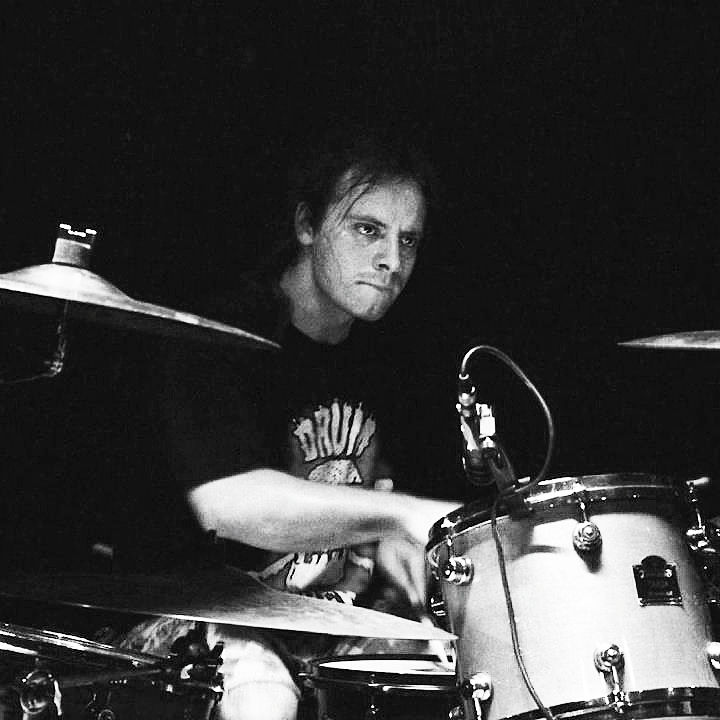
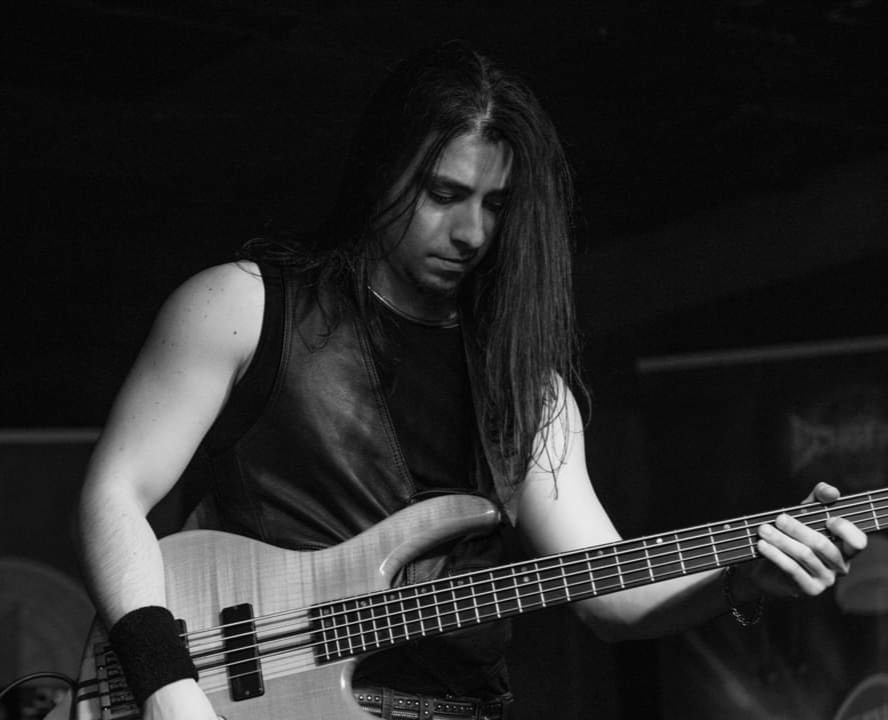
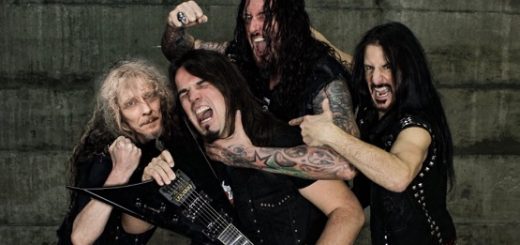

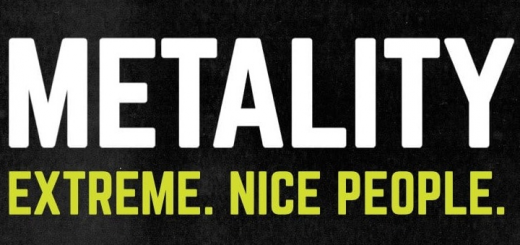
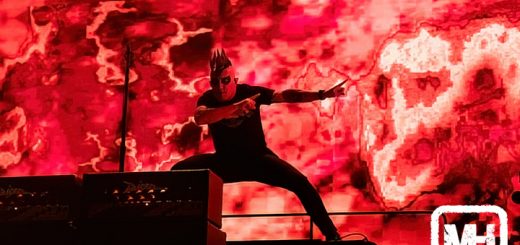
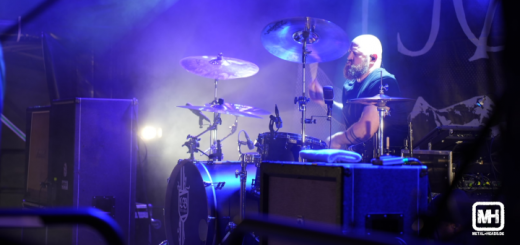

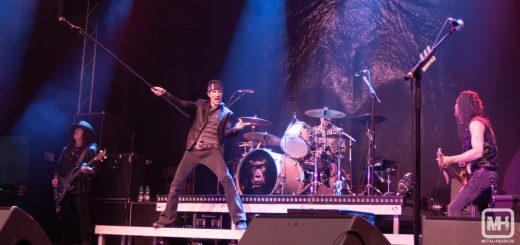
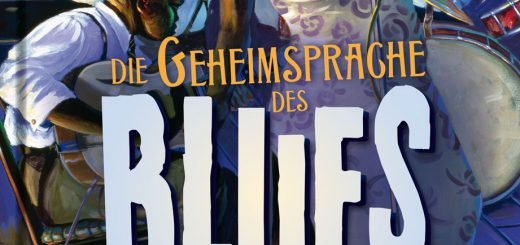
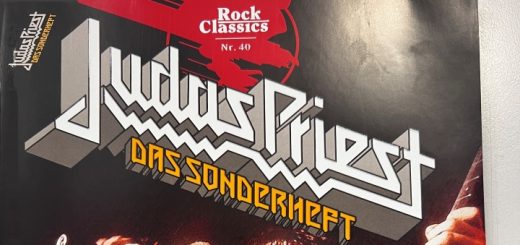
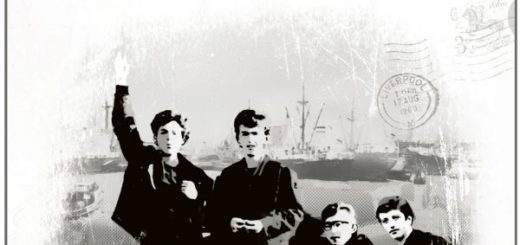
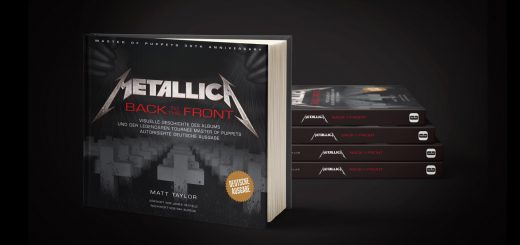



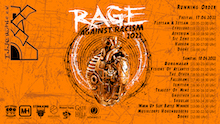










Neueste Kommentare